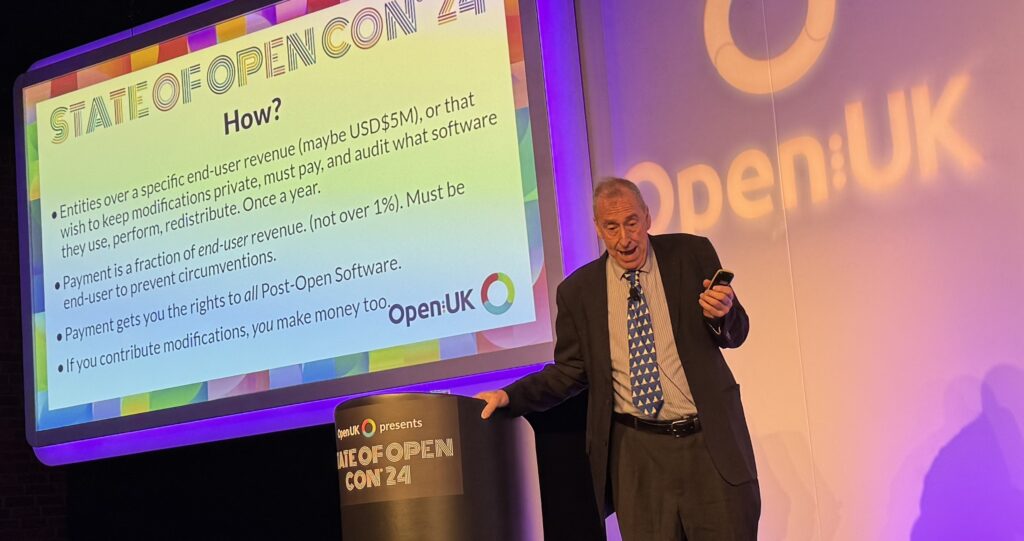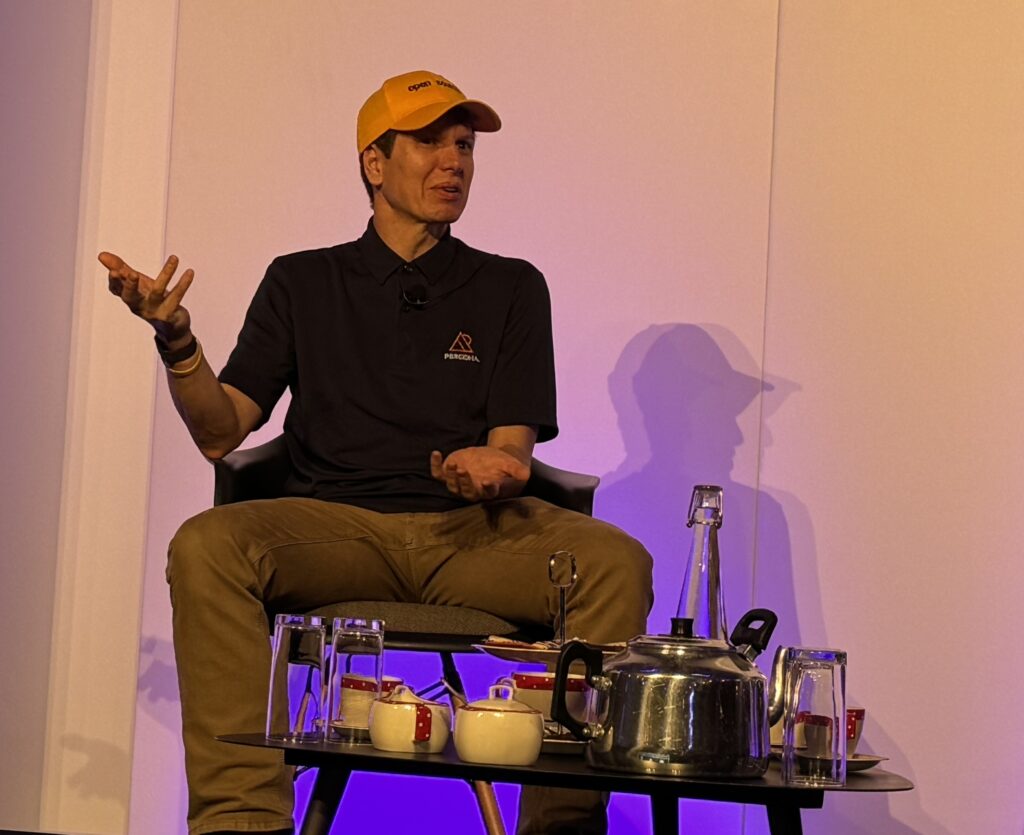
A new type of license will not solve the business model of open source, Percona founder Peter Zaitsev told Dev Class, both because it is unworkable and also loses the “magic of free” that drives innovation.
We spoke to Zaitsev at the State of Open Con in London earlier this week, where business model, compliance and security issues were high on the agenda.
In a panel discussion on how external forces such as government regulation impact open source, Mike McQuaid, maintainer and founder of Homebrew discussed his project as an example. Homebrew is a package manager for macOS.
“I think most people who have been developing on the Mac are likely to interact with Homebrew in some way,” said McQuaid. “Based on our analytics we’ve got 30 million users … but only 30 people are actually making sure that Homebrew is running. And none of those people are actually paid a day job salary to do that.”
Most work in their spare time, he said, and if regulation imposes legal risk “there is a real chance of a chilling effect, where people are going to say, why do I spend my evenings and weekends writing stuff that’s used and relied upon by many people where I’m not getting paid, or getting tiny amounts from donation, if someone’s going to turn around and sue me for doing that?”
His wider concern is that small developers, who sit down and decide to write an open source library that may become a dependency for millions of people, may decide “this is too risky. I’m going to play World of Warcraft instead.”

Bruce Perens, creator of the 1998 Open Source Definition, addressed the conference with a possible solution, as earlier reported by The Register. “I’m not the happy speaker,” he said. “Everyone else is going to tell you how great open source has been, and I’m going to tell you how we failed.” Open source, he said, has been a “great corporate welfare program. Our users are the richest companies in the world …in contrast, our developers who aren’t working for those companies probably go uncompensated.” Open source, he said, is “unfairly structured to reward corporate licensees rather than us, the licensors who create the software.”
His solution, which he called post-open, is to require entities generating a specific end-user revenue, perhaps at least $5 million, to pay a fee that would entitle them to use all post-open software under a single license. The fee would be paid to contributors, via trusted intermediary organizations, based on audit of what software is used, and analysis of contributors to the licensed project repositories.

We spoke to Peter Zaitsev, co-founder of Percona and also a speaker at State of Open Con. Percona is a business based on commercial support and managed services for open source database managers including MySQL and PostgreSQL. Regarding the Perens proposal, he said that “to me, it looks a little bit like a bait and switch. I think what he was saying has nothing to do with open source … hey, I want to create another proprietary system which will reward the developers.
“I think that is an interesting thing to explore,” he told us, remarking on how it reminded him of the music industry and the role of platforms like Spotify in distributing money to artists based on plays. However, he did not think it is workable. “There is already so much code,” he said, “relicensing that is pretty much impossible. Even if you have a couple of people in Linux say, I don’t want my stuff relicensed using this new post-open system, you need to get rid of their code.”
He also talked of the “magic of free, both in money as well as freedom, that I can just download and use open source software without violating some license.” In some scenarios, paying $1.00 or even “trying to figure out if I have to pay or not” is a blocker to grassroots innovation.
Zaitsev also has little patience for companies complaining that hyperscale clouds are taking their open source software and commercializing it as a cloud service. There are examples such as Elastic, MongoDB and others where the license has been changed to prohibit this as a result. “I think that is a convenient excuse,” he told us. “The point mainly is, we want to avoid competition. If we want to maximize the money, we need to make sure we don’t have any competition.”
What is the solution to the business model issues in open source? Zeitsev discussed several aspects. The hyperscale providers are trying to drive customers towards their proprietary services and getting the benefit of lock-in; but cloud costs are increasing which is an opportunity for open source businesses. “We do not have as much resources to spend as an Amazon, but we can follow the 80/20 rule, where we can provide the 20 percent of the most important features which are good enough for 80 percent of applications. And then you grow from there.”
There is also a support opportunity because, according to Zaitsev, the big vendors treat support as “a kind of necessary evil and it is crappy, it is only good enough.”
